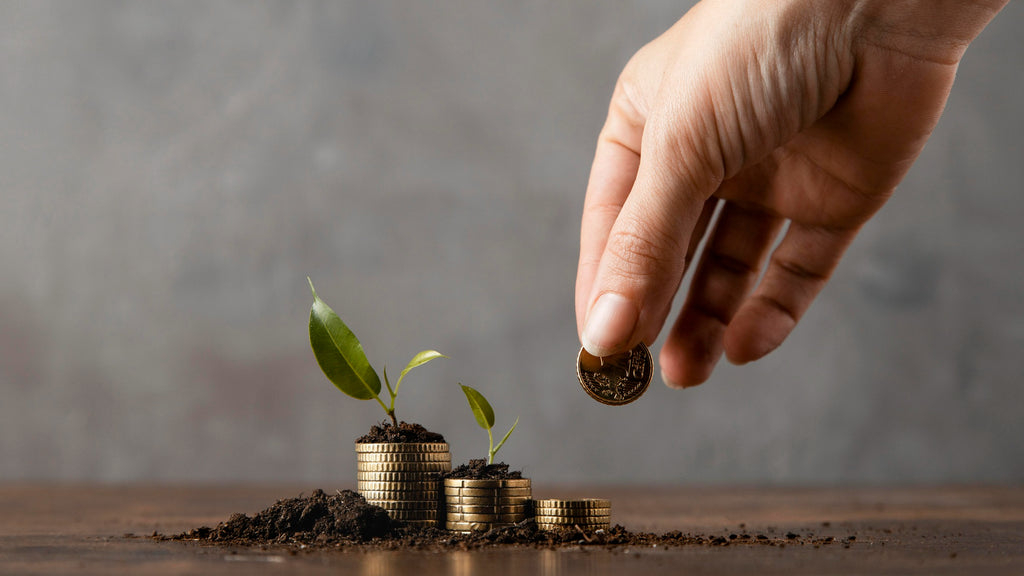Did you know that only 1 in 3 sustainable businesses make it past the first five years of operation? Starting a sustainable business is a commendable step towards a better future, but there are some harsh realities that no one tells you about sustaining your business in the long run.
It is becoming more challenging to incorporate environmental efforts into a business plan due to the economic dynamics at play in the industry. Right from understanding your customer, to finding the right vendors for sourcing- these are some of the many challenges sustainable business founders encounter. But there are more:
Limited Availability Of Funds And Resources
Access to finance and resources is a major issue for sustainable enterprises. They often require a larger initial investment to use sustainable materials, apply sustainable production methods, and create innovative technologies.
Traditional lenders may view your businesses as riskier, making it difficult to obtain financial resources. However, alternative financing options like crowdfunding, and impact investing help. Many Community Development Financial Institutions (CDFIs) favour sustainability and social responsibility.
Competing With Bigger Corporations
Many established companies are "greenwashing" customers by claiming their products are sustainable without evidence. However, consumers are becoming more educated and able to identify true sustainability.
While larger brands may have an advantage in producing sustainable products at lower prices, many smaller sustainable businesses are winning customers' trust by providing quality service and products. Indian consumers are also slowly becoming aware of the benefits of supporting sustainable businesses — thanks to the internet!
Making A Profit Might Pose A Difficulty
Sustainable companies often have to choose between making a profit and being socially and environmentally responsible. This is because sustainable practices can be costly, such as using eco-friendly materials, implementing energy-saving measures, or paying employees fairly.
These added costs can make it challenging for you to stay competitive in the market and turn a profit. For many founders, it can be difficult to keep their businesses running while maintaining their commitment to sustainability.
Lack Of Awareness About Sustainability
While the demand for sustainable products is growing, many consumers still don't understand what sustainability means, making it difficult for you to promote your brand and communicate the benefits of your practices.
Some customers may also be sceptical of eco-friendly claims, believing sustainable products are costly or ineffective. Establishing trust with customers takes time, but creating valuable content, engaging with customers, and partnering with brand ambassadors can help build that trust.
Regulations And Policies Are Not Favourable
As a sustainable startup, you might face complex and changing regulations that create barriers to entry. Meeting legal requirements, such as obtaining licenses, following environmental standards, or complying with trade laws, can be challenging and expensive.
However, by following environmental standards and complying with trade laws, you can set yourself apart from competitors and build trust with your customers.
It's A Long-Term Commitment
Building a sustainable business takes time and work, therefore it's a long-term commitment. To accomplish your goals, you must be persistent, patient, and willing to work hard.
It's not a quick-money scam; rather, it's a long-term commitment to creating something resilient.
Your Brand Ethos v/s Your Beliefs
As a founder, it is natural to imply your personal beliefs and principles to your company as well. But it is always wise to keep them as two separate schools of thought that coincide at many points.
Since sustainability is still a topic of research, debate and topics which may constantly shape your opinions, your brand must stand by its principles. Sustainability by large is a huge subject, and different people are practising it in different ways.
With a rising sea of opinions and solutions you as a brand must adhere to what you started with, and with time keep bringing in solutions to continue creating the impact you first committed yourself to.
Partner With The Right People And Brands
Partnering with people, brands, or organisations that share the same values is crucial for your sustainable businesses as it reinforces your business's commitment to sustainability. Your reputation and credibility are always on the radar. Hence partnering with companies that share the same ethos becomes important.
Be it your supply chain, collaborating for a bigger cause, or be it listing your products on e-commerce platforms — every association small or big counts.
We at Suspire truly care about whom we associate with. With over 160+ brands listed with us, we are extremely conscious of the brands we onboard.
Since our inception, we have been committed to creating awareness around eco-friendly shopping and supporting brands that are already on the journey of providing sustainable alternatives. Check out all the brands at Suspire here.
Cover Image by Freepik.












